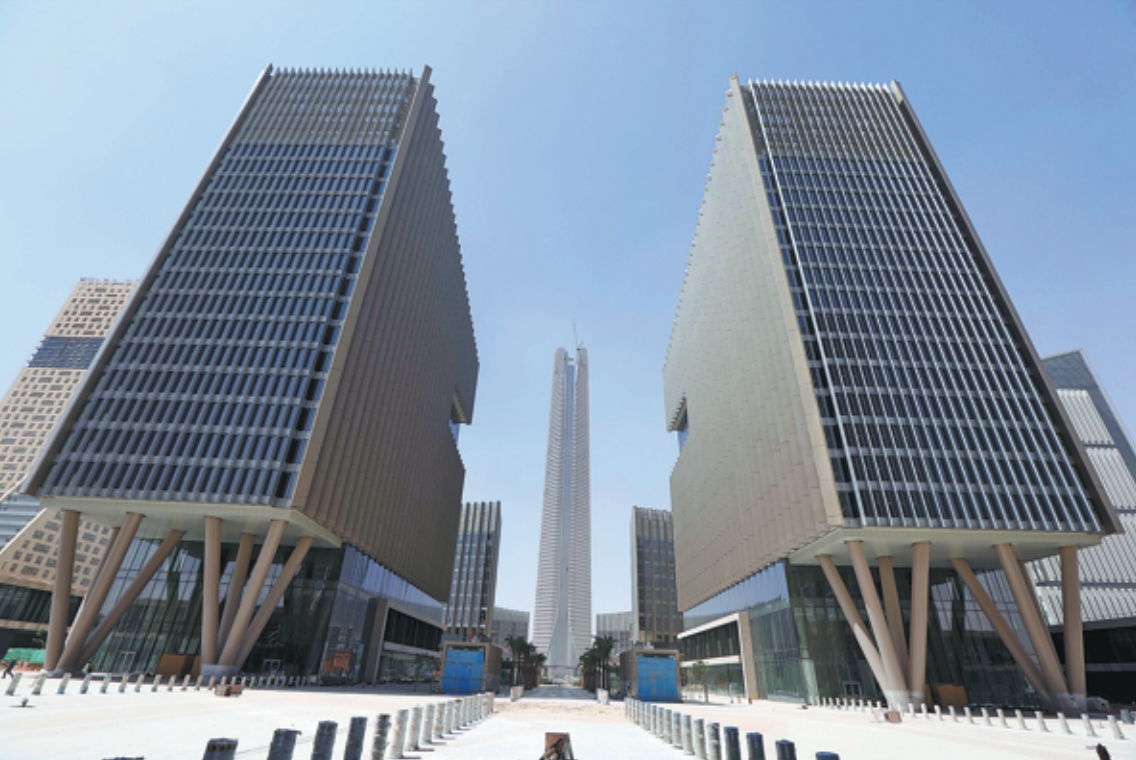Countries expanding cooperative initiatives
By YUAN SHENGGAO | China Daily | Updated: 2023-10-18 10:06

Efforts by China and Egypt to improve conditions for enhancing synergy between the Belt and Road Initiative and Egypt's Vision 2030 are expected to result in even deeper and more prosperous trade and business cooperation in the years ahead, according to expert analysts and government officials.
Vision 2030, initiated by the Egyptian government in 2016, represents a comprehensive, long-term plan encompassing political, economic and social aspects. It was crafted in alignment with the United Nations Sustainable Development Goals and includes an ambitious target to reduce greenhouse gas emissions from the energy sector, including oil and gas, by 10 percent before 2030 compared to 2016 levels, as reported by the Paris-headquartered International Energy Agency.
"As the world's two longest-established civilizations and firm supporters of multilateralism, China and Egypt are both willing to pursue green and innovative growth, and they will enhance their collaboration in areas such as production capacity, infrastructure, new energy, agriculture and modern services, as well as emerging and advanced industries," said Zhou Mi, a senior researcher at the Chinese Academy of International Trade and Economic Cooperation in Beijing.
Zhou said this will create new possibilities for win-win cooperation in the years ahead.
By donating a batch of energy-saving public facilities in June, China assisted Egypt in addressing challenges posed by climate change while promoting the country's green transformation and climate adaptation.
The donation, which included solar light emitting diode streetlights, LED bulbs, solar home systems and energy-efficient air conditioners, was provided by China's Ministry of Ecology and Environment to help Egypt's consumption patterns go green.
At the delivery ceremony in Cairo, Liao Liqiang, China's ambassador to Egypt, said the donation underlined the resolute determination of both countries in promoting green and low-carbon transformation and tackling climate change. Ali Abo Sena, chief executive of the environmental affairs agency of the Egyptian environment ministry, said the donation will help Egypt live up to its climate commitment by cutting greenhouse gas emissions.
Faced with a torrent of global challenges, including diminished demand for goods and geoeconomic fragmentation, the total value of China-Egypt trade dropped 14.4 percent year-on-year to $10.4 billion in the first eight months of 2023, according to data from China's General Administration of Customs. Egypt's exports to China include fruit, foodstuffs, cotton, spices, marble, plastics, petroleum products, linens, glass and cowhide, while China ships computers, telecommunications and medical equipment, trains, trucks, diesel oil, steel, medical equipment, textiles and household appliances the other way.
Against a background of sluggish global economic recovery, deeper economic and trade cooperation between China and Egypt is in the fundamental interests of the two countries and can contribute to the recovery of the world economy, said Liu Zhongmin, a professor in Middle East Studies at Shanghai International Studies University. Echoing that sentiment, Assem Hanafi, Egypt's ambassador to China, said developing countries have great potential to work together for common goals, with Egypt-China space cooperation serving as a vivid example. Egypt is the first country to conduct satellite cooperation with China under the framework of the BRI.
As Egypt-China space cooperation has produced fruitful outcomes in recent years, China's advanced space technologies can be applied in such areas as disaster prevention and mitigation, as well as agriculture, and the country's edge in space technologies can help Egypt and many other developing countries, said Hanafi.
Aside from growing the real economy, China and Egypt have also deepened their cooperation in helping Egypt develop vocational education and build technical training center projects, said Fang Qiuchen, president of the China International Contractors Association, which helps Chinese construction companies expand their business overseas.
Fang said Chinese companies will play a key role in improving Egypt's ongoing industrialization and proving that building modern infrastructure facilities will help the country put its economic growth on a firmer footing.
























